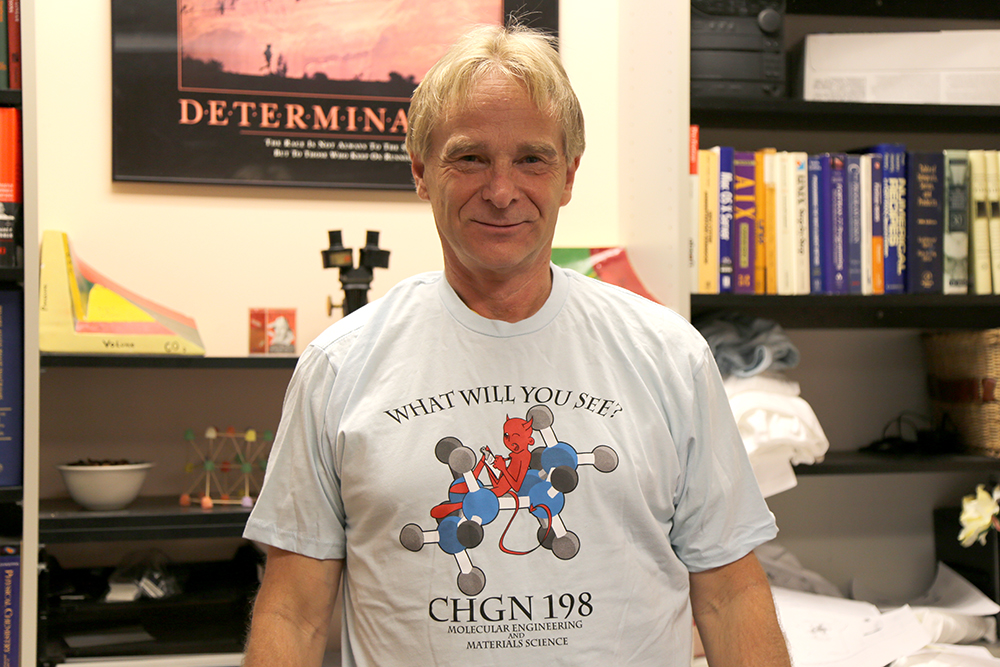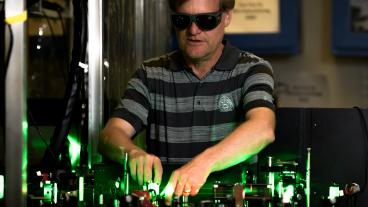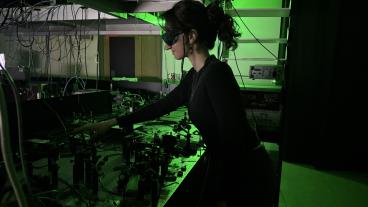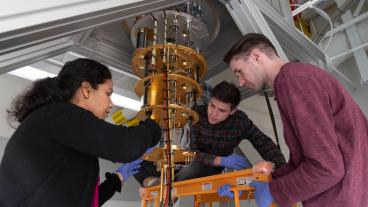
GOLDEN, Colo., May 6, 2015 – Professor of Chemistry and Geochemistry Mark Eberhart is finally teaching the class he wishes he could’ve signed up for back when he was a freshman, and it’s getting rave reviews from Mines students.
After three semesters as a pilot course, Molecular Engineering and Materials Science (CHGN 125) becomes a regular course this fall –an effort to give new college students something completely different from their high school classes.
Eberhart chose to focus on solid-state materials, and study “real things,” such as how transistors and light-emitting diodes work. “This is what got me into science,” Eberhart said. “There’s more to chemistry than acids and bases.”
But the class is not just about making science more interesting – it’s also designed to instill “engineering values” in students by emphasizing the relationship between process, structure, and property. “Regardless of major, students will be using processes to manipulate structure to produce desired properties,” Eberhart said.
Although the class could be of interest all students, the pilot course was geared and marketed to students majoring in Engineering Physics, Metallurgical and Materials Engineering, and Mechanical Engineering.
“It taught me the difference between science and engineering,” said Physics major Matt Martin.
Fellow freshman and Physics major Calvin Swanson said even the lab component was a hit. “There were cool experiments that I thought related well to the material,” Swanson said. “I had a lot more fun with it than I thought I would.”
Mechanical Engineering major Madalyn Stewart said students in the class are engaged. “Dr. Eberhart is really excited about teaching the subject.”
Of the topics covered in class, she was particularly interested in superconductivity and Prince Rupert’s Drops – objects created by dropping molten glass into cold water. The glass cools into a droplet shape with a long, thin tail; the bulbous end can withstand hammer blows, but can explode if the tail is even slightly damaged.
Adam Fink, Mechanical Engineering major, said he took the class because he was interested in being able to shape the future of the pioneering course.
Fink and other students described the class as a “low-entropy course,” where heat (standing in for knowledge in this analogy) is retained in students’ brains and changes their structure, instead of dissipating.
“I’m probably going to remember at least 70 percent of this course in the next year,” Fink said, who has also started reading about molecular engineering outside of class assignments.
Students are so enthusiastic about the class, they’ve even designed a T-shirt for it, featuring a molecule, Maxwell’s demon, and the phrase “What will you see?” – apparently a frequent Eberhart refrain.
“It’s not available anywhere else,” Eberhart says. “It’s a unique course to Mines. This is a whole separate approach to engineering.”
Contact:
Mark Ramirez, Information Specialist, College of Applied Science & Engineering | 303-384-2622 | ramirez@mines.edu
Karen Gilbert, Director of Public Relations, Colorado School of Mines | 303-273-3541 | kgilbert@mines.edu



